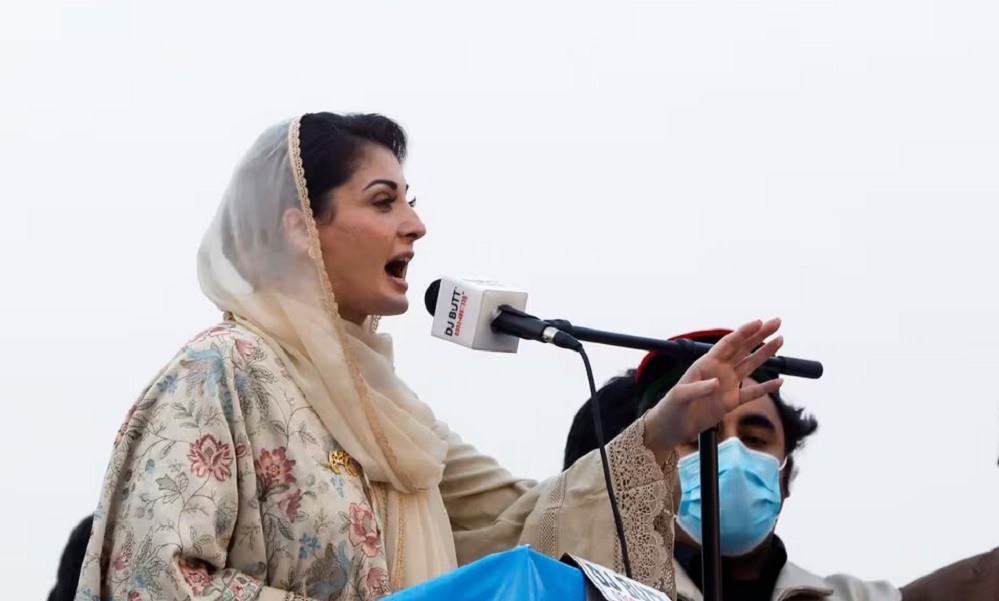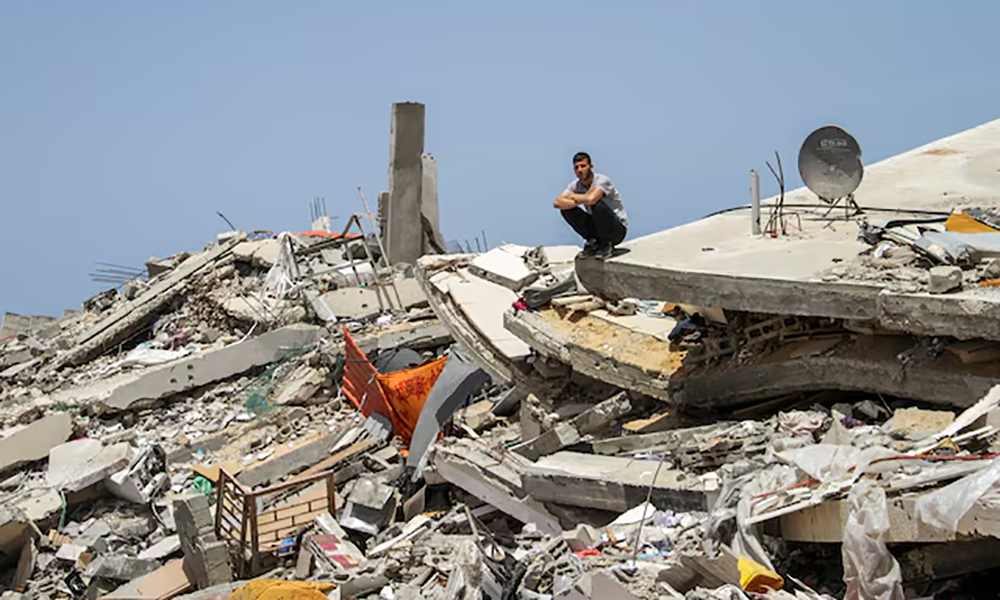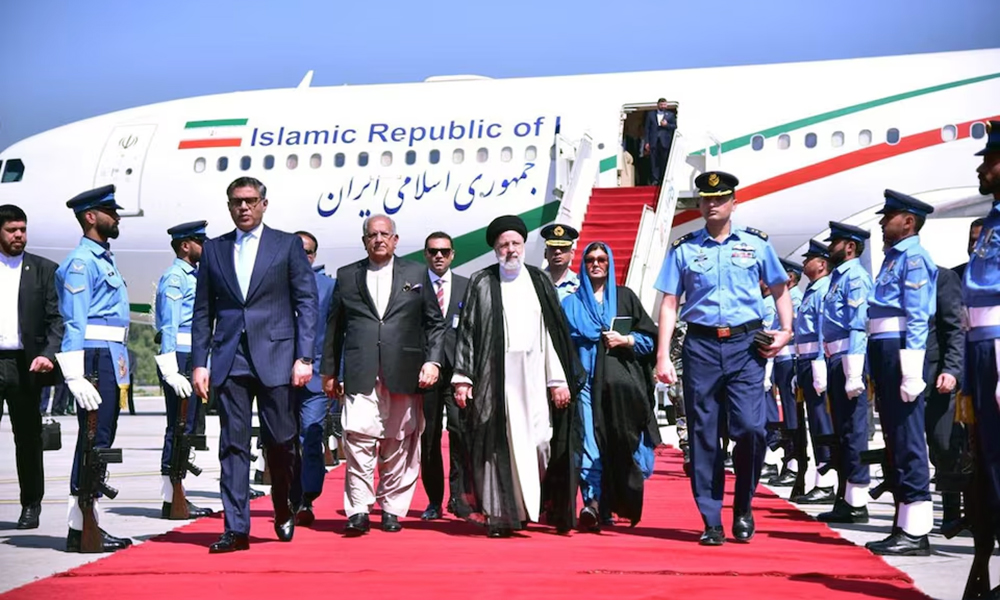Regional
Nawaz Sharif’s daughter elected to head Pakistan’s Punjab, seen as stepping stone

Maryam Nawaz, the daughter of Pakistan’s three-time former prime minister Nawaz Sharif, was elected on Monday as the head of the country’s most populous province, Punjab, in a move underlining the expanding grip of the family in the South Asian nation.
Maryam, 50, her father’s political heir, is the first woman to be chief minister of Punjab – a post that has long been a stepping stone to becoming the country’s prime minister.
She secured 220 votes in the 371-seat provincial assembly, the Punjab assembly speaker said has he announced the results of the election that was boycotted by the opposition Sunni Ittehad Council party backed by jailed former prime minister Imran Khan.
Khan and his allies allege that the Feb. 8 national elections were rigged against them – an allegation denied by the country’s election commission.
“I am disappointed the opposition is not here to be part of this democratic process,” Maryam said in her address to the house after winning the election, adding that her doors were open to talks with the opposition.
Maryam is the fourth member of her family to become the chief minister of Punjab, which accounts for 53% of Pakistan’s 241 million population and 60 percent of its $350 billion GDP. It is also the home province of the Sharif family.
Her father, Nawaz Sharif, and his younger brother, Shehbaz Sharif, have also been chief ministers of Punjab. Shehbaz’s son held the post for a few months last year.
Shehbaz is likely to be elected Pakistan’s prime minister for a second time when the parliament meets later this week.
FIERY ORATOR
Maryam Nawaz is known for her fiery speeches and pulling large crowds, but has not held a prominent public office before. The 2024 general election was the first time she contested the polls, and she represented her father’s Pakistan Muslim League-Nawaz.
She entered mainstream politics after 2017 when she and her father were found guilty of concealing assets, and they both served jail time before their convictions were overturned.
After her father left for London in late 2019 for medical treatment, she led a countrywide campaign to take on Khan’s government, the country’s powerful military and the judiciary, who she blamed for targeting her party and family.
She has faced deep criticism from opponents, including Khan, of dynastic politics in Pakistan. But has also been targeted for being a woman leader in the socially conservative Muslim nation.
“A woman with a mind of her own who does not conform to your ideas, who is good-looking, stylish and knows it; is that the problem?” said political commentator Marvi Sirmad, referring to the critical comments against her.
Born on Oct. 28, 1973 in the eastern city of Lahore into a wealthy industrialist family, she married Safdar Awan, an army officer who was serving as a personal secretary to his father in his second term as prime minister in 1992.
They have a son, two daughters and a grand-daughter.
She studied medicine but did not complete her degree, and later got a Masters in English Literature from Punjab University.
She played a key role in establishing her party’s social media wing to combat Khan’s digital presence, and headed a youth affairs programme for her father when he was premier in 2013.
(Reuters)
Regional
New UK sanctions target Iranian drone industry

Britain on Thursday announced new sanctions targeting Iran’s military drone industry, in response to Iran’s drone and missile attack on Israel earlier this month.
The measures, taken in co-ordination with the U.S. and Canada, target four businesses and two directors at a network of drone companies with the aim of limiting Iran’s ability to launch drones.
“The Iranian regime’s dangerous attack on Israel risked thousands of civilian casualties and wider escalation in the region,” British Foreign Secretary David Cameron said in a statement.
“Today the UK and our partners have sent a clear message – we will hold those responsible for Iran’s destabilising behaviour to account.”
Britain also said it would introduce new bans on the export of drone and missile components to Iran, seeking to limit its military capabilities.
Last week, Britain imposed sanctions on Iranian military figures and organisations, in another coordinated move with the United States, following Iran’s action against Israel.
Iran launched drones and fired missiles at Israel on April 13 as a retaliatory strike for the attack on its embassy compound in Damascus two weeks prior, raising the risk of further escalation in conflict in the Middle East.
(Reuters)
Regional
Turkey accuses U.S. of double standards over Gaza in rights report

Turkey on Wednesday accused the United States of having a policy of double standards on human rights, saying Washington’s annual rights report failed to reflect Israel’s assaults in Gaza, Reuters reported.
Turkey’s foreign ministry said in a statement it was deeply concerned that the U.S. report did not “duly reflect the ongoing inhumane attacks in Gaza”.
The report was prepared with “political motives, far from impartiality and objectivity”, it said, calling on Washington to cease its “double-standard policy on human rights”.
It also cited U.S. ties with the Syrian Kurdish YPG militia which Ankara deems a terrorist organisation.
Israeli forces have killed more than 34,000 Palestinians in Gaza, according to health authorities there, many of them civilians and children. The enclave has been reduced to a wasteland and extreme food shortages have prompted fears of famine.
Israel launched its assault in response to an attack by the Hamas militant group on Oct. 7 in which Israel says 1,200 people were killed. It denies allegations of deliberately causing humanitarian suffering and targeting civilians.
Turkey has denounced Israel for its campaign in Gaza and called for a ceasefire. It has also criticised Western countries for what it calls their unconditional support of Israel, read the report.
In its report, the U.S. State Department said Israel’s war against Hamas had a “significant negative impact” on the human rights situation in Israel.
On Monday, U.S. Secretary of State AntZony Blinken rejected suggestions that Washington might have double standards over Israel’s record.
Regional
Iranian president lands in Pakistan for three-day visit to mend ties

Iranian President Ebrahim Raisi arrived in Islamabad on Monday on a three-day official visit, the foreign office said, amid tight security in the Pakistani capital, Reuters reported.
The visit, which Pakistan’s foreign office said would run until Wednesday, comes as the two Muslim neighbours seek to mend ties after unprecedented tit-for-tat military strikes this year.
“The Iranian president is accompanied by his spouse and a high-level delegation,” Pakistan’s foreign ministry said in a statement, adding that the group also included the foreign minister, other cabinet members and senior officials.
Raisi will meet Prime Minister Shehbaz Sharif and other officials, besides visiting the eastern city of Lahore and southern port city of Karachi, it added.
Major highways in Islamabad were blocked as part of the security measures for Raisi’s arrival, while the government declared a public holiday in Karachi, read the report.
Raisi’s visit is a key step towards normalising ties with Islamabad, but Iran’s supreme Leader Ayatollah Ali Khameni, not the president, has the last say on state matters, such as nuclear policy.
Tension is also high in the Middle East after Iran launched an unprecedented attack on Israel a week ago and central Iran in turn suffered what sources said was an Israeli attack on Friday.
Pakistan and Iran have had a history of rocky relations despite a number of commercial pacts, with Islamabad being historically closer to Saudi Arabia and the United States.
Their highest profile agreement is a stalled gas supply deal signed in 2010 to build a pipeline from Iran’s South Fars gas field to Pakistan’s southern provinces of Balochistan and Sindh, Reuters reported.
Despite Pakistan’s dire need of gas, Islamabad has yet to begin construction of its part of the pipeline, citing fears over U.S. sanctions – a concern Tehran has rejected.
Pakistan said it would seek waivers from the U.S., but Washington has said it does not support the project and warned of the risk of sanctions in doing business with Tehran.
Faced with the possibility of contract breach penalties running into the billions of dollars, Islamabad recently gave the go-ahead for construction of an 80-km (50-mile) stretch of the pipeline.
-

 Latest News3 days ago
Latest News3 days agoRashid Khan named AWCC’s brand ambassador
-

 Regional4 days ago
Regional4 days agoIranian president lands in Pakistan for three-day visit to mend ties
-

 Sport4 days ago
Sport4 days agoKolkata beat Bengaluru by one run in IPL as Kohli fumes at dismissal
-

 Sport4 days ago
Sport4 days agoACL: Aino Mina 3-0 Istiqlal Kabul; Attack Energy 3-0 Khadim
-

 Climate Change4 days ago
Climate Change4 days agoRescuers race to reach those trapped by floods in China’s Guangdong
-

 Business5 days ago
Business5 days agoAfghanistan, Kazakhstan to hold joint expo in Kabul
-

 World3 days ago
World3 days agoMalaysian navy helicopters collide in mid-air, 10 killed
-

 Sport3 days ago
Sport3 days agoJaiswal ton powers Rajasthan to big IPL win
























